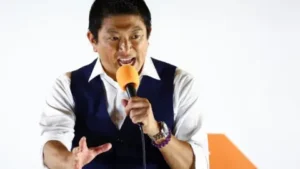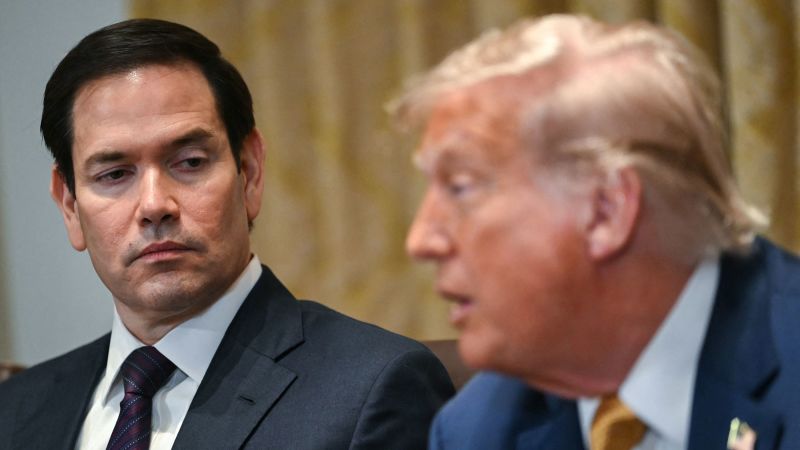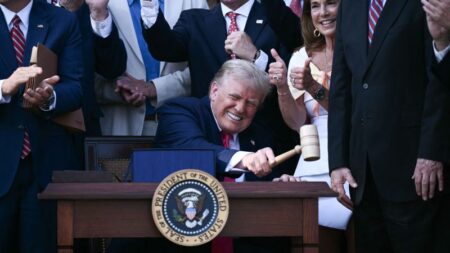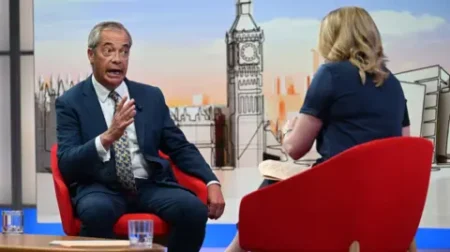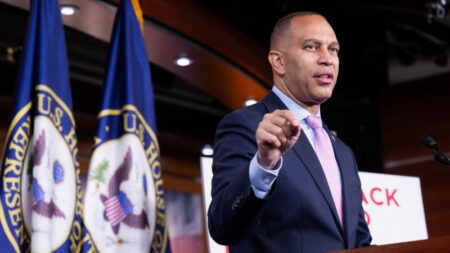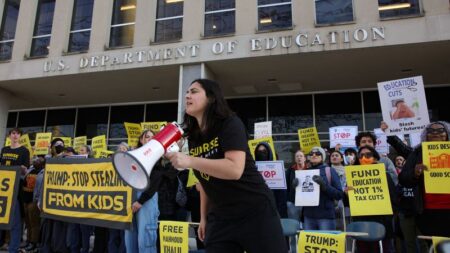In the early hours in Malaysia, Secretary of State Marco Rubio found himself amidst a crucial conversation involving President Donald Trump and NATO Secretary General Mark Rutte, focusing on the intensifying crisis in Ukraine. This marked Rubio’s inaugural trip to Asia in his capacity as Trump’s chief diplomat, and he had recently engaged in discussions with Russian Foreign Minister Sergey Lavrov. During this pivotal call, Rubio conveyed Trump’s mounting frustration over limited progress in peace negotiations, underscoring the extensive American efforts to mitigate the conflict without tangible outcomes from the Kremlin.
Rubio provided a somewhat optimistic update to the media, stating that Lavrov had proposed “new and different” ideas regarding a potential resolution to the Ukrainian war. However, he cautioned that there were no guarantees of peace and remained non-committal when pressed about the administration’s concrete policy on Ukraine, signaling that further discussions with Russia could be anticipated. This moment was crucial, as it indicated that Trump was ready to pivot in his approach toward Ukraine rather than retract from the conflict, which many had speculated he might do. Following exhaustive efforts to establish a ceasefire, Trump shifted strategies and the U.S. was positioned to support Ukraine by potentially supplying billions of dollars in weaponry, manufactured in the U.S., funded by NATO allies.
Marking a significant departure from the brief hiatus in military support agreed upon by Defense Secretary Pete Hegseth, Trump’s re-engagement in Ukrainian affairs illustrated Rubio’s growing influence in shaping foreign policy within the administration. Throughout his career as a senator before joining the Trump administration, Rubio had built a reputation as a supporter of strong U.S. backing for Ukraine. Yet, once he entered the Trump administration, his tone adjusted, aligning with the emerging isolationist sentiments at the beginning of Trump’s second term.
A myriad of sources within the administration noted Rubio’s adeptness in maneuvering through the complexities of foreign policy without overtly steering Trump away from his initial instincts. This ability earned him considerable trust and influence as he aligned with Trump’s objectives rather than challenging them. Many officials described Rubio as a facilitator who presented options while respecting the president’s ultimate end-goals, marking a stark contrast to other senior officials who attempted to redirect Trump’s interests.
Despite the turmoil within the State Department due to substantial layoffs impacting over 1,300 civil and foreign service officers, Rubio’s leadership was considered crucial during this transformation. The restructuring, facilitated by his inner circle, indicated his capability to navigate decisions without executing drastic cuts similar to those seen under Elon Musk in other government areas.
The relationship between Trump and Rubio evolved from adversarial to one characterized by camaraderie and mutual respect, solidifying a bond through shared interests such as UFC events and personal family dynamics. Interestingly, Rubio had garnered substantial trust from Trump, which was reflected in Trump’s remarks of him being irreplaceable in his role.
As the dual roles of Secretary of State and National Security Advisor converged, Rubio faced enormous responsibility, having to balance intricate foreign policy challenges and Trump’s broader agendas. While criticisms loomed over operational confusion within the National Security Council and the approach to foreign diplomacy, Rubio’s rapport with Trump was seen as a strong stabilizing factor amidst bureaucratic challenges.
By deftly managing foreign policy crises, including military operations against Iran and a complex prisoner swap involving Venezuelan nationals, Rubio asserted a significant role in Trump’s national security framework. However, his visibility sometimes wavered, with instances of missed meetings with foreign diplomats, emphasizing the high-paced, Trump-centric environment.
As he continued to shine within the administration, Rubio’s efforts to maintain humor and amicability have served as vital tools in defusing tensions, especially in politically charged discussions. His effective communication style has not only helped him connect with lawmakers but also fostered a collaborative atmosphere when discussing critical strategies.
In conclusion, Rubio’s ascent in the Trump administration reflects a blend of strategic adaptability, expanded influence, and a keen understanding of the political landscape. His unique capability to navigate complex challenges and offer solutions that resonate with both Trump and a wider audience places him in a distinctive position as a key player in U.S. foreign policy, not only during times of uncertainty but also in shaping future diplomatic endeavors.

